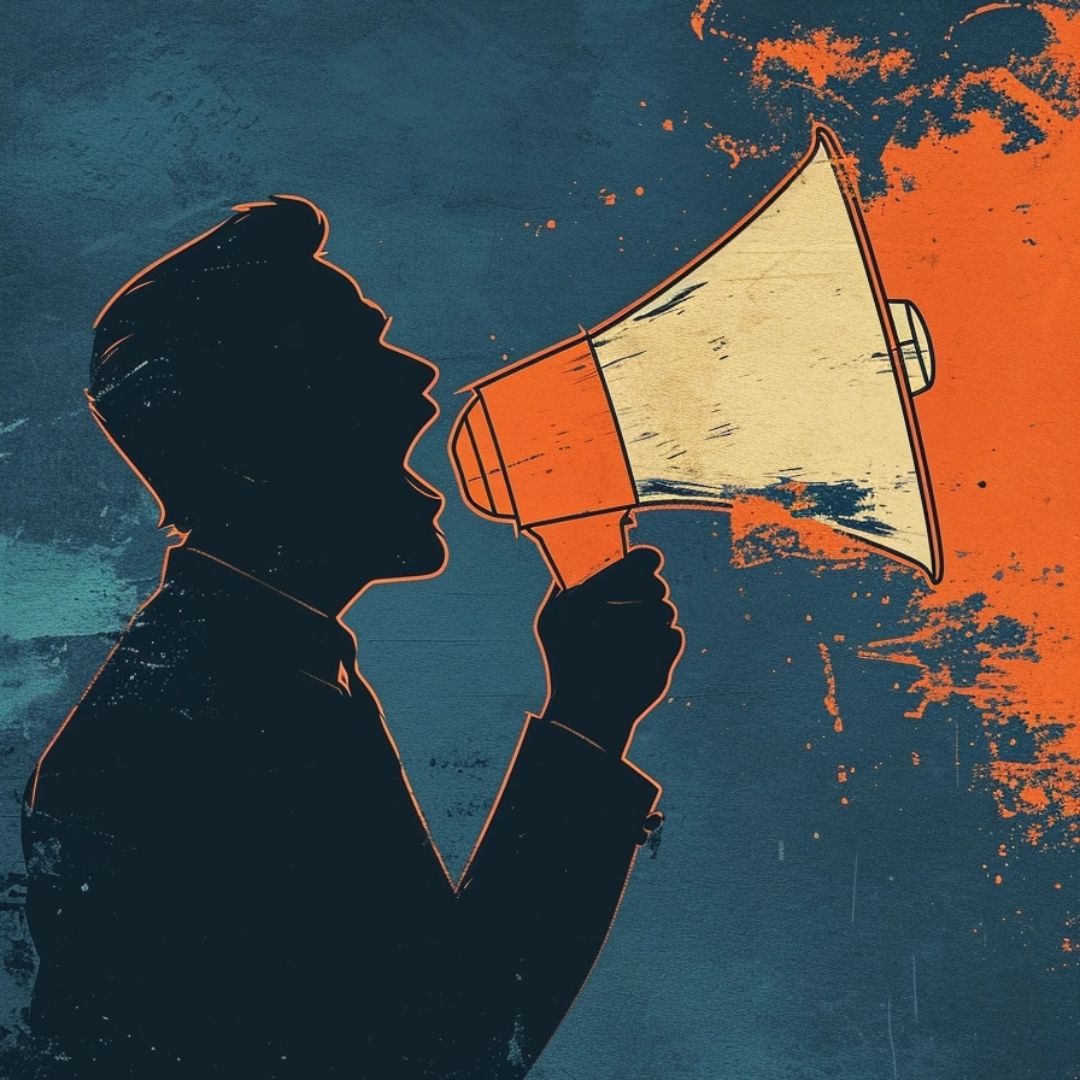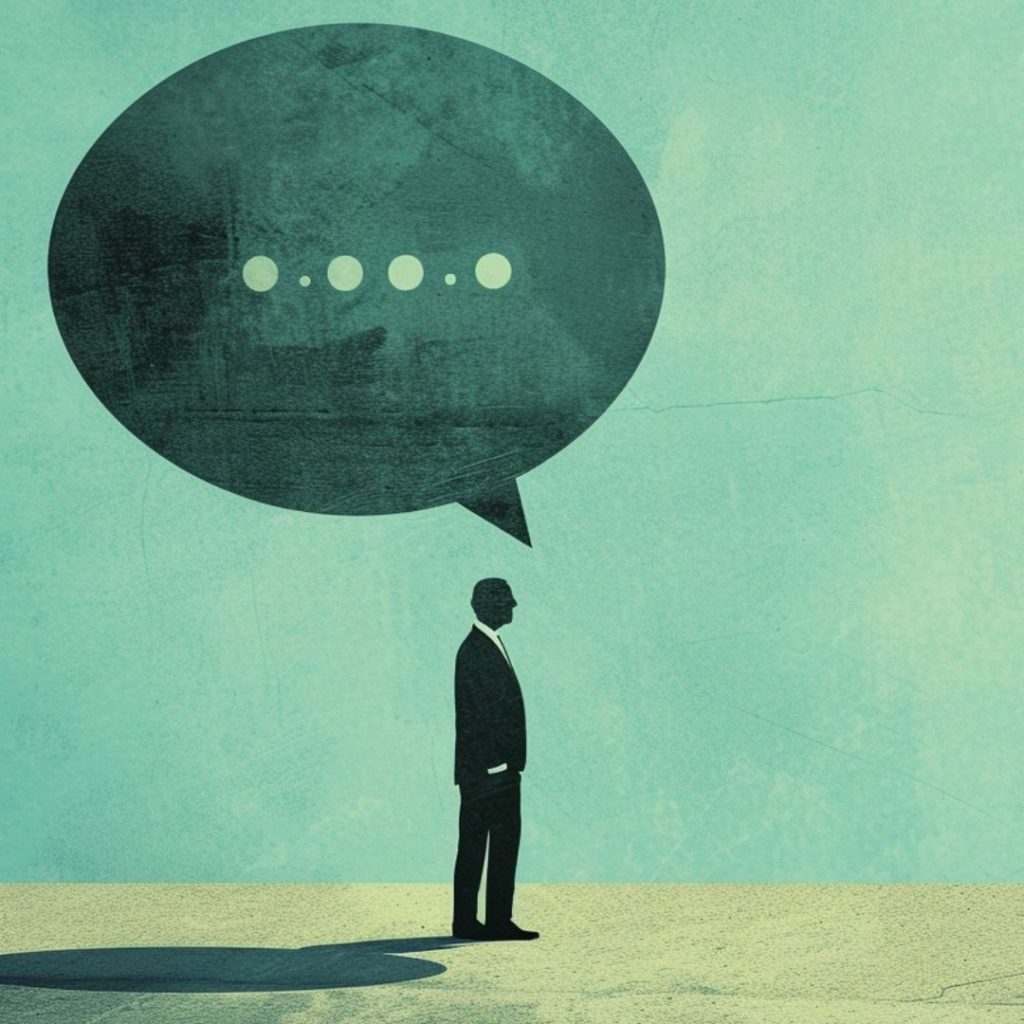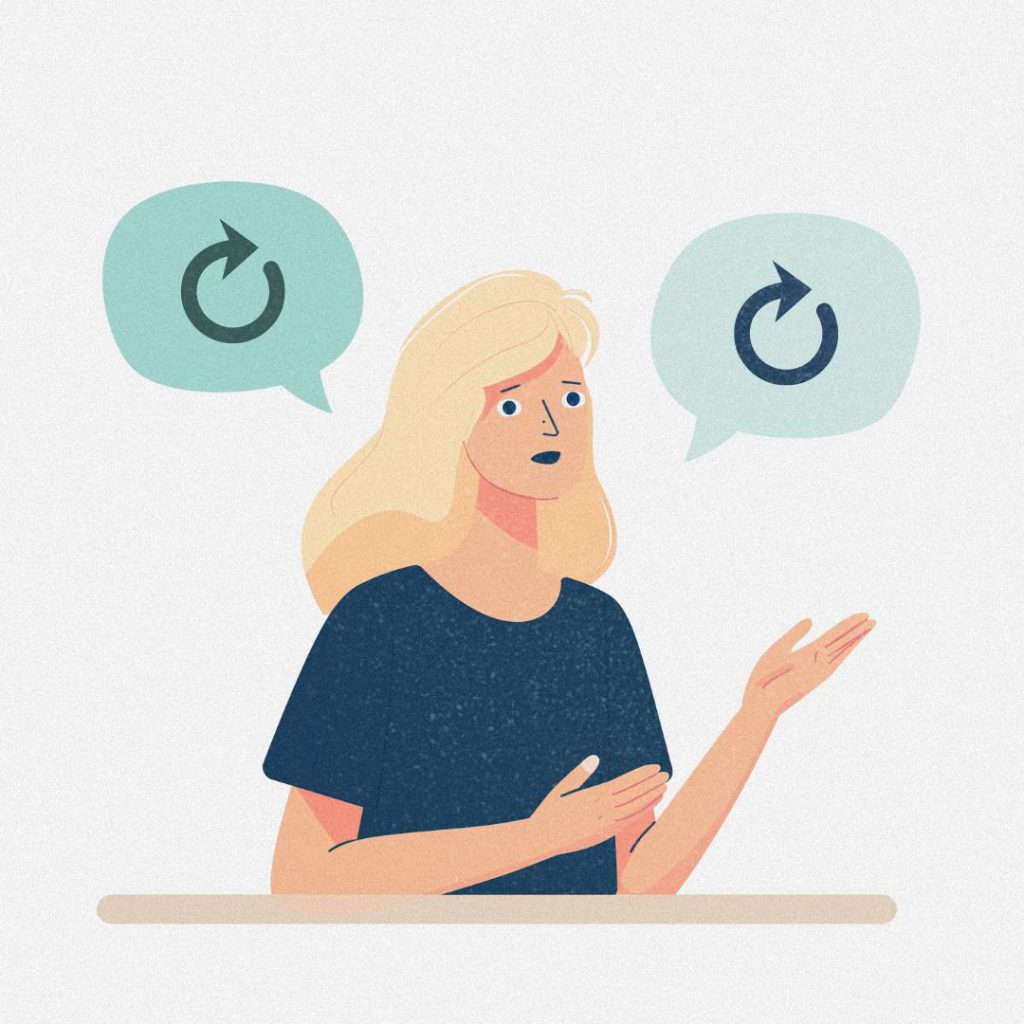Can You Have Echolalia as an Adult?

Have you ever found yourself unintentionally repeating a phrase you just heard? While this might be a fleeting occurrence for many, for some adults, it can be a persistent and even disruptive phenomenon known as echolalia.
This article explores echolalia in adults; its causes, types, and potential treatments. We’ll uncover the complexities of this phenomenon, offering insights into the challenges faced and the available treatment options.
How is Echolalia in Adults?

Echolalia is the involuntary repetition of spoken words or phrases uttered by others. It’s like an “echo” of someone else’s speech.
While common in developing children as they acquire language skills, echolalia can also occur in adults and sometimes signifies an underlying condition.
Echolalia Symptoms in Adults
The main symptom of echolalia in adults is the repetitive and involuntary imitation of spoken words or phrases. This can manifest in several ways:
- Immediate echolalia in adults: This involves repeating the words or phrases right after hearing them.
- Delayed echolalia in adults: This involves repeating the words or phrases sometime after hearing them, sometimes hours or even days later.
- Functional echolalia in adults: This involves using repeated phrases to initiate communication or express needs or desires. For example, an adult with echolalia might say “Do you want…?” when they want something.
- Non-interactive echolalia in adults: This involves repeating phrases without any apparent communicative intent, sometimes for self-stimulation or to cope with anxiety.
Other potential symptoms associated with echolalia in adults include:
- Difficulty initiating or maintaining conversations
- Frustration or anxiety during social interactions
- Limited spontaneous speech
- Difficulties with understanding the meaning of spoken language
It’s important to remember that these are just potential symptoms, and their presence or absence can vary greatly depending on the underlying cause and severity of echolalia.
| Discover: 10 Most Common Mental Health Disorders in the World
Causes of Echolalia in Adults
Echolalia in adults can arise from various causes, with the specific reason influencing its form and severity. Here’s some potential underlying factors and echolalia causes in adults:
- Autism Spectrum Disorder (ASD): Echolalia is a well-known characteristic of ASD, serving as a tool for processing and understanding language, echolalia in autistic adults is very common. (Read the complete article to gain more insights about “Echolalia and Autism“)
- Tourette syndrome: Vocal tics, including echolalia, are hallmarks of this condition.
- Stroke or head injury: Stroke, head injury, and Parkinson’s disease can damage brain regions responsible for language processing, leading to echolalia in older adults.
- Dementia: Echolalia in adults with Dementia is mostly common among individuals with Alzheimer’s disease. It happens due to impairments in language processing and communication capabilities.
- Aphasia: This language disorder caused by brain damage can sometimes involve echolalia as a symptom.
- Severe amnesia: During language relearning after severe amnesia, echolalia can be a transitional phase.
- Psychological conditions: In rare cases, echolalia might be associated with certain mental health conditions like schizophrenia.
- Developmental delays: Individuals with developmental delays in communication may exhibit echolalia as they learn language skills.
- Learning disabilities: Some learning disabilities affecting language processing can involve echolalia.
- Stress or anxiety: While uncommon, heightened stress or anxiety in specific situations might trigger echolalia in some individuals.
Echolalia, the involuntary repetition of spoken words, is observed in both developing children and adults, often signaling an underlying condition.
Symptoms:
- Immediate echolalia: Repetition right after hearing words.
- Delayed echolalia: Repetition sometime after hearing, even days later.
- Functional echolalia: Using repeated phrases for communication or expressing needs.
- Non-interactive echolalia: Repeating phrases without apparent communicative intent.
- Difficulty initiating or maintaining conversations.
- Frustration or anxiety during social interactions.
- Limited spontaneous speech.
- Difficulties with understanding the meaning of spoken language.
Causes:
- Autism Spectrum Disorder (ASD)
- Tourette syndrome
- Stroke or head injury
- Dementia
- Aphasia
- Severe amnesia
- Psychological conditions
- Developmental delays
- Learning disabilities
- Stress or anxiety
| Suggestion: Most Common Mental Health Issues in Youth
Examples of Echolalia in Adults
For better understanding, here are some examples of echolalia in adults, categorized by type and function:
- Immediate Echolalia: Someone asks, “What would you like to drink?” The adult immediately replies, “What would you like to drink?”
- Delayed Echolalia: A person watches a movie with a memorable line like, “May the force be with you.” Later that day, they might randomly say, “May the force be with you” without context.
- Functional Echolalia: An adult who struggles with expressing their needs might say, “Hungry… want snack?” to communicate they want a snack.
- Non-Interactive Echolalia: During a stressful meeting, someone unconsciously hums a familiar song repeatedly under their breath.
Echolalia in Adults with ADHD

Attention Deficit Hyperactivity Disorder is primarily characterized by inattention, hyperactivity, and impulsivity. These core features don’t inherently include echolalia.
ADHD itself is not considered a direct cause of echolalia. While echolalia is more commonly associated with conditions like Autism Spectrum Disorder (ASD) and Tourette syndrome, it can occasionally occur in adults with ADHD.
Research suggests that echolalia is significantly less common in individuals with ADHD compared to those with ASD or Tourette syndrome.
When echolalia appears in adults with ADHD, it often points to co-occurring conditions like ASD, Tourette syndrome, or anxiety disorders, where echolalia is a more established symptom.
ADHD can co-occur with other conditions like ASD, where echolalia is a known feature. In such cases, it becomes challenging to pinpoint the exact cause of echolalia.
In some rare instances, echolalia might manifest in adults with ADHD as a coping mechanism for stress, anxiety, or sensory overload. This is not a typical symptom but can occur under specific circumstances.
ADHD, characterized by inattention and hyperactivity, is not a direct cause of echolalia, a phenomenon more commonly associated with ASD and Tourette syndrome. When echolalia occurs in adults with ADHD, it often signals co-existing conditions like ASD or Tourette syndrome. While rare, echolalia in ADHD individuals might serve as a coping mechanism for stress or sensory overload.
| Read the complete article: Echolalia in ADHD
Treatment of Echolalia in Adults
Treating adults with echolalia requires a multifaceted approach that addresses the underlying cause and aims to improve communication skills. The specific treatment plan depends on the individual’s needs and the severity of echolalia. Here are some common approaches:
Speech-Language Therapy
This is the primary treatment for echolalia in most cases. A speech-language pathologist can:
- Identify the type and function of echolalia.
- Develop strategies to reduce echolalia frequency and impact.
- Teach alternative communication methods. Using augmentative and alternative communication (AAC) device. These tools can help individuals express themselves non-verbally, like picture boards or electronic devices.
Behavioral Therapy
- Applied Behavior Analysis (ABA) breaks down desired behaviors into smaller steps and uses positive reinforcement to encourage them. ABA techniques can help individuals identify and respond to triggers for echolalia, gradually reducing its frequency.
- Cognitive Behavioral Therapy (CBT) helps individuals identify and change unhelpful thought patterns that might contribute to echolalia. For example, CBT can address anxiety or fear of speaking that might trigger echolalia as a coping mechanism.
Medications
This is not the primary treatment for echolalia. However, in some cases, medications might be prescribed to address underlying conditions like ADHD, anxiety, or depression, which can indirectly impact echolalia.
Treating adults with echolalia involves a personalized, multifaceted approach to address the underlying cause and enhance communication skills. Common strategies include:
Speech-Language Therapy:
- Identify echolalia type and function.
- Develop strategies to reduce frequency and impact.
- Teach alternative communication methods, such as AAC devices.
Behavioral Therapy:
- Applied Behavior Analysis (ABA)
- Cognitive Behavioral Therapy (CBT)
Medications:
While not the primary treatment, medications may be prescribed for underlying conditions like ADHD, anxiety, or depression, indirectly impacting echolalia.
Also read…
HealWiser’s Last Piece of Advice
While echolalia in adults can present challenges in communication, it is crucial to recognize that it does not define an individual. Through accurate diagnosis, personalized treatment plans, and ongoing support, adults with echolalia can develop effective communication strategies and confidently navigate social interactions.
If you or someone you know is experiencing echolalia, do not hesitate to reach out for a healthcare professional.
Sharing your experiences can provide valuable insights and emotional support. So…
…share your story with Heal Wiser and others in the comments section below this post.






